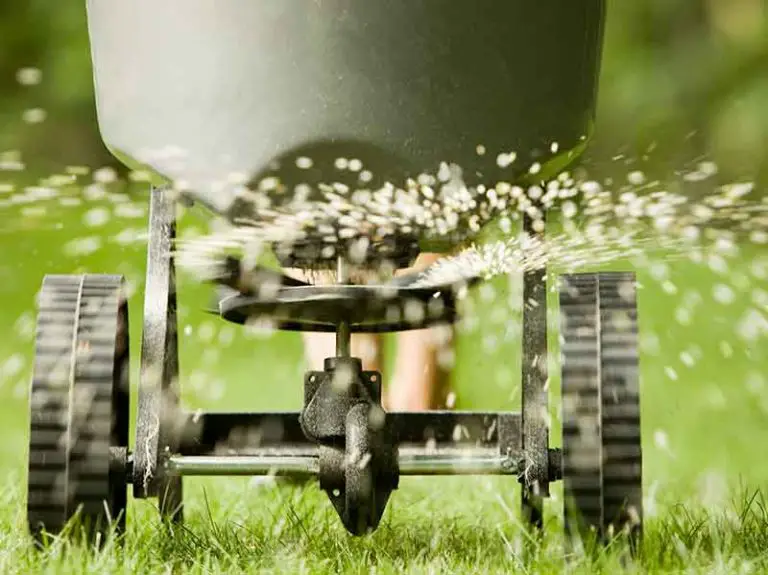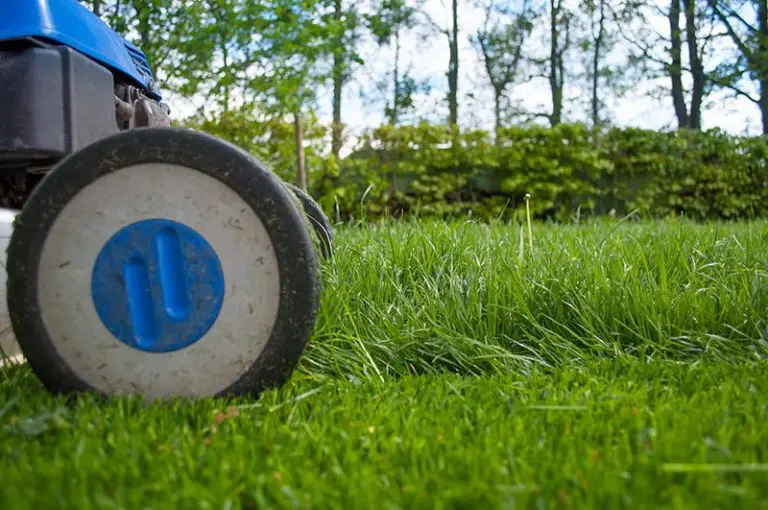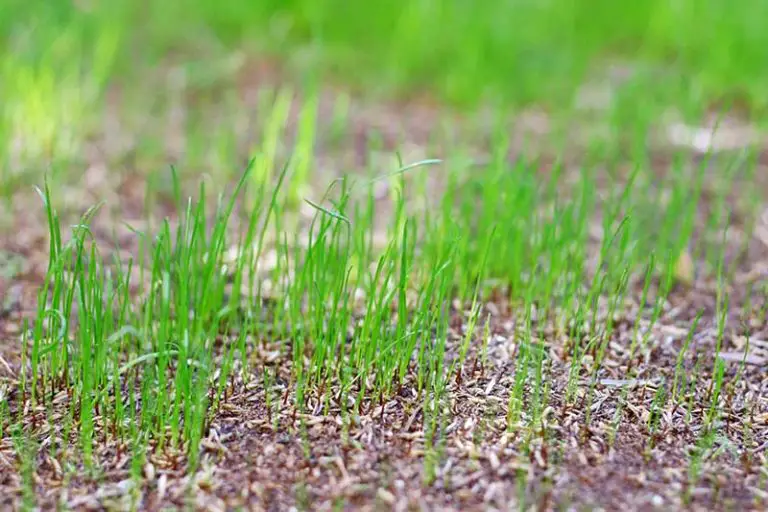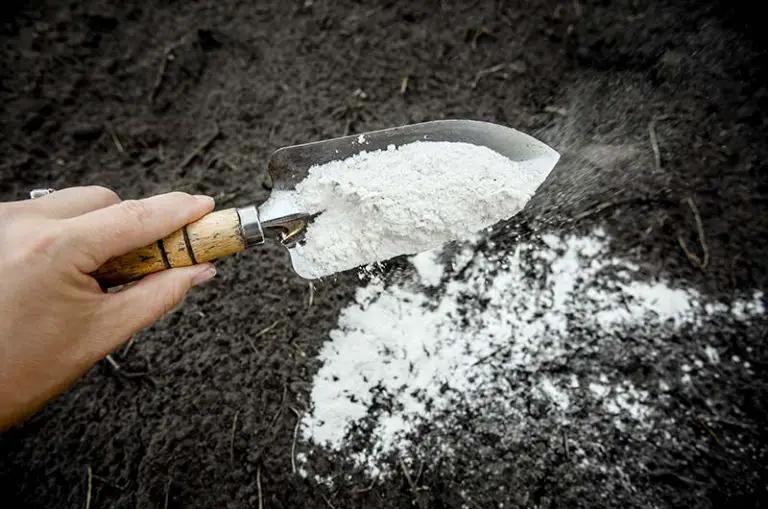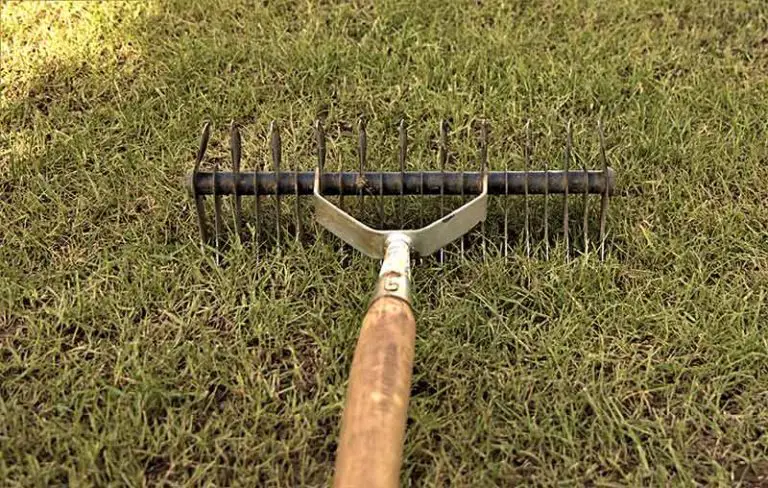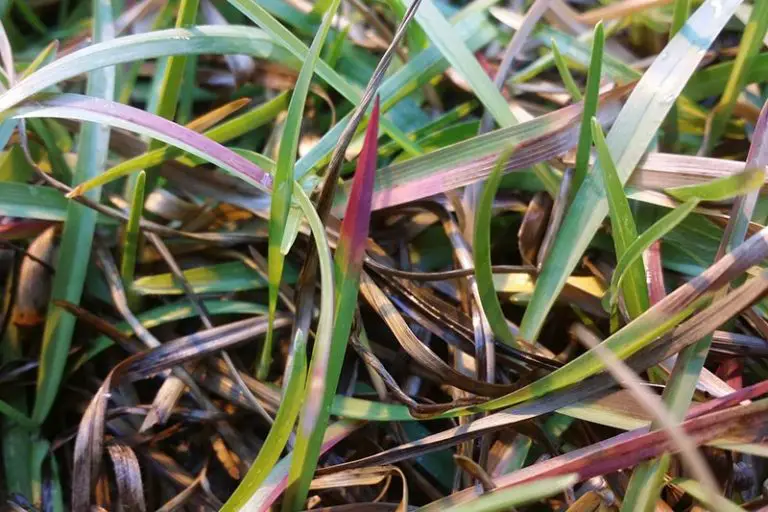DIY Lawn Fertilizer for a Greener Lawn
Many homeowners consider making their own homemade lawn fertilizer to save themselves the money and time spent on a trip to the store. After some research online, you may have found several different homemade fertilizer recipes that all promise greener grass; you should take care when following these recipes to avoid adverse effects on your lawn.
Common homemade lawn fertilizer recipes involve ingredients like compost tea, household ammonia, and Epsom salt. Although these recipes can all provide benefits for your lawn, there are also some drawbacks to consider before utilizing them. As we explain, out of these three methods, compost tea is the best homemade lawn fertilizer recipe with the lowest risk of harming your turf.
What is Fertilizer?
Fertilizer is any substance that you apply to soil in order to provide plants with nutrients and improve the overall fertility of a planting area. Fertilizers can be of natural or synthetic origin, and contain varying amounts of the primary nutrients grass needs to grow.
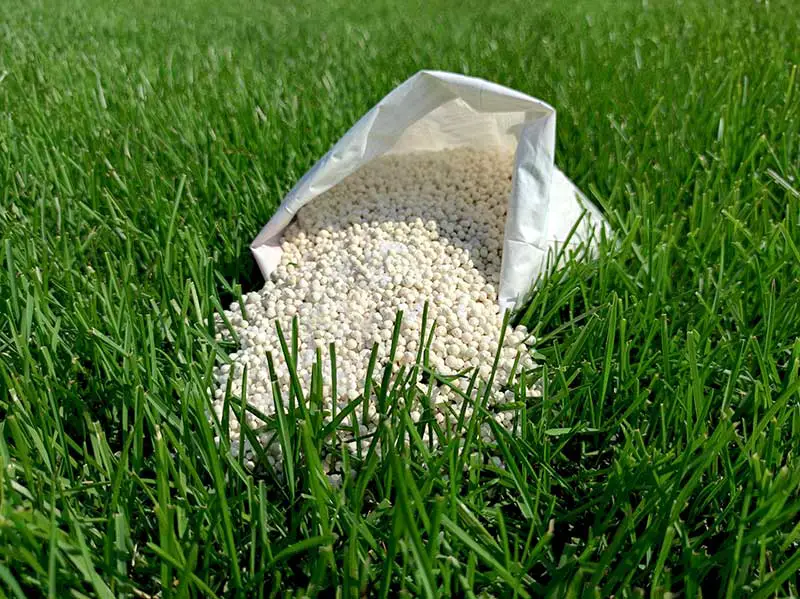
Grass and all other plants require nitrogen, phosphorus, and potassium, along with a number of micronutrients like calcium and iron. Fertilizers contain these nutrients in different quantities or ‘ratios’, as well as being in different formats. When choosing a fertilizer, you have to choose between synthetic and organic fertilizers, and granular or liquid formulas.
With commercial fertilizers, the quantities of the three primary nutrients, nitrogen (N), phosphorus (P), and potassium (K), are listed on the product’s packaging in the format XX-XX-XX; this value is known as the fertilizer’s NPK ratio. Different fertilizers come with different NPK ratios, enabling consumers to pick a product with the ideal nutrient content for their lawn.
Why is it Important to Fertilize Your Lawn?
Fertilization is one of the most crucial elements of a full lawn care routine to grow thick, green grass. Grass plants thrive in soils rich in nutrients; although these nutrients do occur naturally in soil, their presence in your lawn will deplete over time. You can provide your grass with a nutritional boost by fertilizing your lawn with a high-quality fertilizer.
The main benefits of lawn fertilization include:
- Improved growth of stronger, healthier grass
- Enhanced soil health and fertility
- Grass is more resistant to stress from pests, fungal disease, foot traffic, heat and drought, and frost
- Lawn recovers more quickly to repair damage that occurs from stress
- Grass is naturally more resistant to weed growth from invasive broadleaf and grassy weeds
Is it Better to Use Natural Lawn Fertilizer?
When selecting a suitable fertilizer for your lawn, you have the choice between a synthetic or natural fertilizer. In general, it’s best to use natural fertilizers with organic ingredients when possible. Natural fertilizers are better for the health of your lawn, as well as the surrounding environment.
Synthetic fertilizers are synthesized chemical mixtures of the nutrients that plants need to grow. These products are typically effective and fast-acting, being in a format readily taken up by plants. However, you should avoid using chemical treatments wherever possible for several reasons. Firstly, synthetic fertilizers are more likely to lead to overfertilization and fertilizer burn, causing discolored and damaged grass. Secondly, the chemicals in synthetic fertilizers can cause serious damage to the nearby environment.
For these reasons, it’s always best to use natural lawn fertilizers and organic amendments on your grass. Natural fertilizers are made up of entirely organic ingredients; they work by releasing their nutrients as the organic matter breaks down in the soil. As these fertilizers work more gradually to release their nutrients, they keep your lawn steadily fertilized for a longer time after application. Organic fertilizers also have no adverse effects on the nearby environment.
If you’re considering creating your own homemade lawn fertilizer, you should keep this information in mind. A benefit of homemade fertilizer is that you can choose which ingredients you add in; this enables you to exclude any inorganic ingredients from your formula.
Is Homemade Fertilizer Better than Commercial Fertilizer?
For both homemade and commercially-bought fertilizers, there are several pros and cons to consider.
Homemade Lawn Fertilizer
Pros of Using Homemade Lawn Fertilizer
- You can include organic ingredients only in your homemade fertilizer.
- Many homemade lawn fertilizer recipes utilize ingredients you may already have laying around your home.
- Homemade lawn fertilizers cost very little to make, and may even cost nothing if you already have the ingredients.
- Making homemade lawn fertilizer will save you time and money that you would’ve spent on purchasing fertilizer from a store.
Cons of Using Homemade Lawn Fertilizer
- Not all homemade fertilizer recipes are organic with some recipes relying on chemical substances.
- Homemade fertilizer won’t have a product label listing explicit application and safety instructions; this is an industry requirement for commercial fertilizers.
- It’s harder to judge the exact nutrient content of homemade lawn fertilizers.
- Many homemade lawn fertilizer recipes lack nitrogen, phosphorus, and potassium, the three primary nutrients that grass requires.
- Creating a homemade fertilizer with too strong of a concentration can lead to fertilizer burn.
Commercial Lawn Fertilizer
Pros of Using Commercial Lawn Fertilizer
- The majority of commercial fertilizers contain all three of the primary nutrients your grass needs to grow.
- You can easily tell how much of each nutrient is in any given product by looking to its specific NPK ratio.
- Commercial fertilizers are typically more effective than homemade fertilizers.
- Commercial fertilizers come with detailed instructions for their safe usage and exact application rates.
- Organic commercial fertilizers are often safer for the environment than any homemade fertilizer recipe that contains chemical ingredients.
Cons of Using Commercial Lawn Fertilizer
- With commercial fertilizers, there is a bigger risk of polluting the local environment through fertilizer runoff; this is when water from rainfall or irrigation carries the product off your lawn and into nearby bodies of water.
- Commercial lawn fertilizers are more expensive than homemade lawn fertilizers.
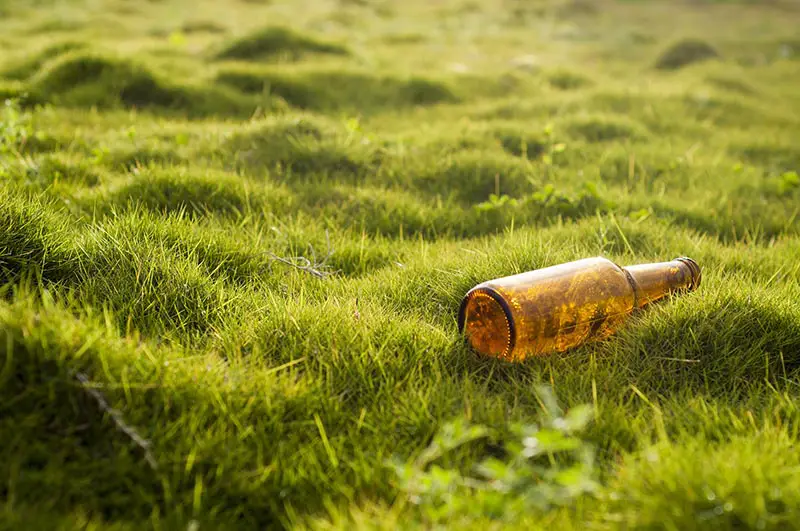
Homemade Lawn Fertilizer Recipes
After doing some research, you may have already come across several different homemade lawn fertilizer recipes. While some recipes can provide a cheap way to deliver nutrients to your lawn, others may end up burning it. Below, we have gone through some of the most common homemade fertilizer recipes and their potential benefits and drawbacks.
Compost Tea
Compost tea is a type of natural lawn fertilizer you can make by steeping compost in water. This low cost and low-effort homemade lawn fertilizer recipe will leave you with a nutrient-rich liquid fertilizer for your grass.
Benefits
- An application of compost tea helps to encourage the presence of lawn-friendly microbes and microorganisms in the soil; these organisms protect your lawn from disease by outcompeting other disease-causing organisms.
- Studies show that compost tea can also improve the lawn’s water retention, reducing your lawn’s irrigation requirements.
- If you already have a compost pile or bin, you can make compost tea for free.
Drawbacks
When composting is done the right way, the process eliminates harmful pathogens in the decaying organic matter. Any deviations from the correct process could cause pathogens to survive and persist within the compost. However, this isn’t much of an issue when using the compost tea on grass; these pathogens only pose a potential threat if you use the compost tea on edible crops.
Recipe
- Either purchase a high-quality compost or use the compost from your own compost pile or bin.
- Take a clean 5-gallon bucket and fill it with 4 gallons of chlorine-free water (e.g. rainwater or well water).
- Next, you’ll need to aerate the water with an aquarium pump. Set two aquarium bubblers in the water, connecting them with the aquarium pump using plastic tubing.
- You’ll then need to place your compost into a fine-mesh bag or pantyhose. For every gallon of water, you should add in one cup of compost; i.e., for 4 gallons of water, you want to add 4 cups of compost.
- Tie up the bag or pantyhose and place it into the bucket of water. Squeeze the compost bag a few times to help the water permeate into it.
- Leave your compost tea to brew for about 1 to 2 days. Over these days, it’s beneficial to stir the water and rearrange the bubblers a couple of times daily.
- Place the tea into a sprayer and apply it to your lawn. One gallon of compost tea will approximately cover 1,000 square feet.
Household Ammonia
Ammonia is a substance often used as an ingredient in homemade lawn fertilizer recipes. In addition to being a typical ingredient in commercial fertilizers, ammonia is also a common household cleaning substance. Ammonia-based fertilizers can provide your lawn with nitrogen; however, too high of a concentration of ammonia can kill your grass.
Benefits
- Lawn fertilizer made with household ammonia provides a source of nitrogen for your lawn; nitrogen is the most important nutrient for mature grass.
- You can make this homemade lawn fertilizer with regular household ammonia or ammonium hydroxide.
Drawbacks
The biggest risk with making a homemade fertilizer from household ammonia is the potential for it to burn your grass. The chemical concentration of the ammonia in household cleaners varies from product to product. It’s likely that the brand used by the author in the recipe you follow will differ from the brand you have at home. Because of this discrepancy, you may accidentally use too high a concentration of ammonia in your brew; highly concentrated ammonia can burn or kill your grass.
In addition to the previous drawback, ammonia-based homemade fertilizers are also likely to harm the environment from run-off. The chemicals that end up in nearby waterways can build up to a toxic level. This will harm fish and other aquatic organisms, as well as potentially polluting the local water supply.
Recipe
- Purchase or find in your cupboard any standard household ammonia or ammonium hydroxide.
- Dilute one tablespoon of the ammonia into one gallon of water to create your homemade fertilizer.
- Place your homemade fertilizer into a sprayer.
- Test your ammonia solution on a small portion of your yard. Monitor how the grass in the test area reacts over the following 24 hours.
- If the test area holds up, apply your homemade fertilizer throughout the rest of your lawn.
Epsom Salt
Espom salt is another household substance you may come across in homemade lawn fertilizer recipes. The chemical name for Epsom salt is magnesium sulfate, being a naturally-occurring mineral made up of magnesium and sulfur. Epsom salt is only effective as a fertilizer for magnesium-deficient lawns.
Benefits
- You can use Epsom salt to add magnesium to a deficient lawn.
- Although sulfur is commonly used to raise soil pH, the sulfate ion in Epsom salt won’t affect soil pH.
Drawbacks
On its own, Epsom salt as a fertilizer won’t be enough to achieve a thick, green lawn. While Epsom salt is a good source of magnesium, it lacks nitrogen, phosphorus, and potassium. Your grass needs these three nutrients most in order to stay green and healthy. With that said, magnesium is still an important micronutrient plants need to form chlorophyll.
Another drawback of Epsom salt is the substance’s high salt content. If your lawn has high salinity levels, you should avoid using Epsom salt as an amendment.
Recipe
- Wait until the spring before treating your lawn with Epsom salt.
- Create a solution by dissolving two tablespoons of Epsom salt per gallon of water.
- Place the homemade lawn fertilizer solution into a sprayer and apply it to your lawn.

